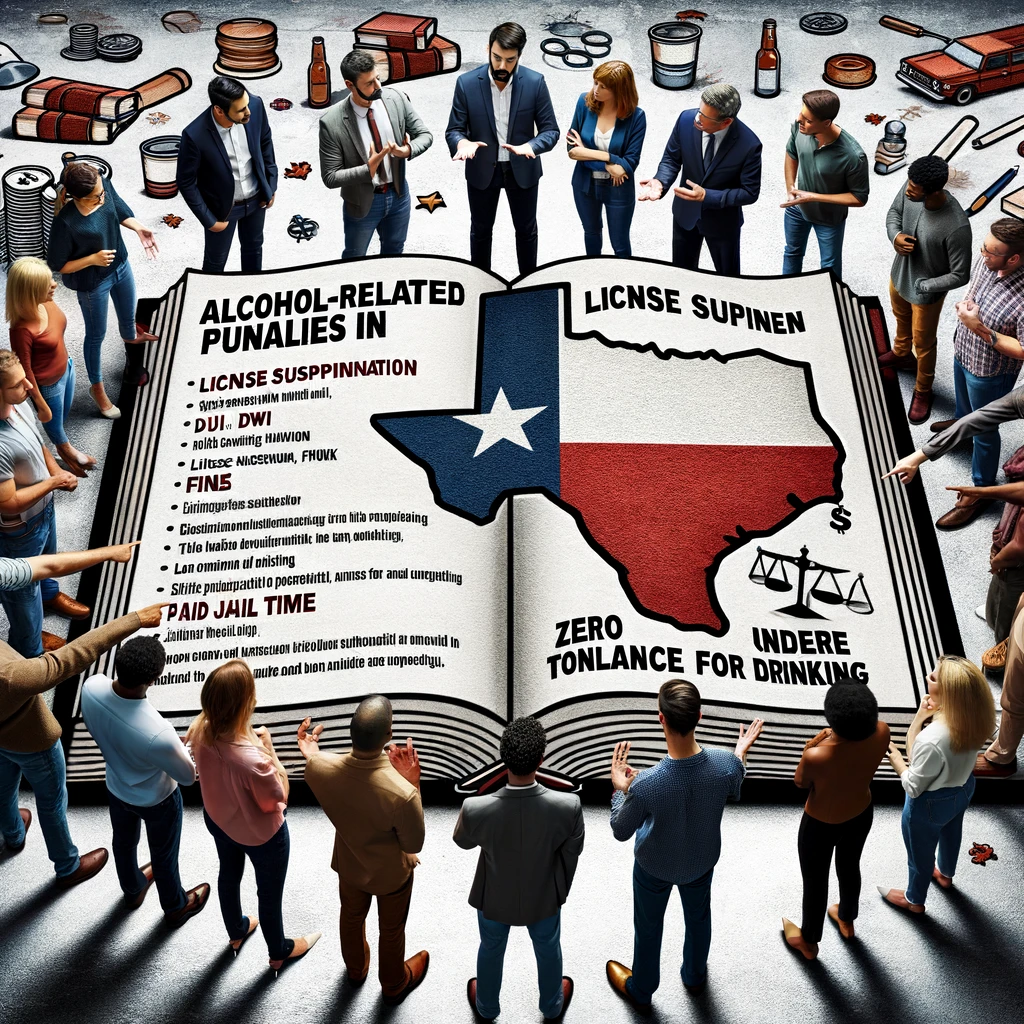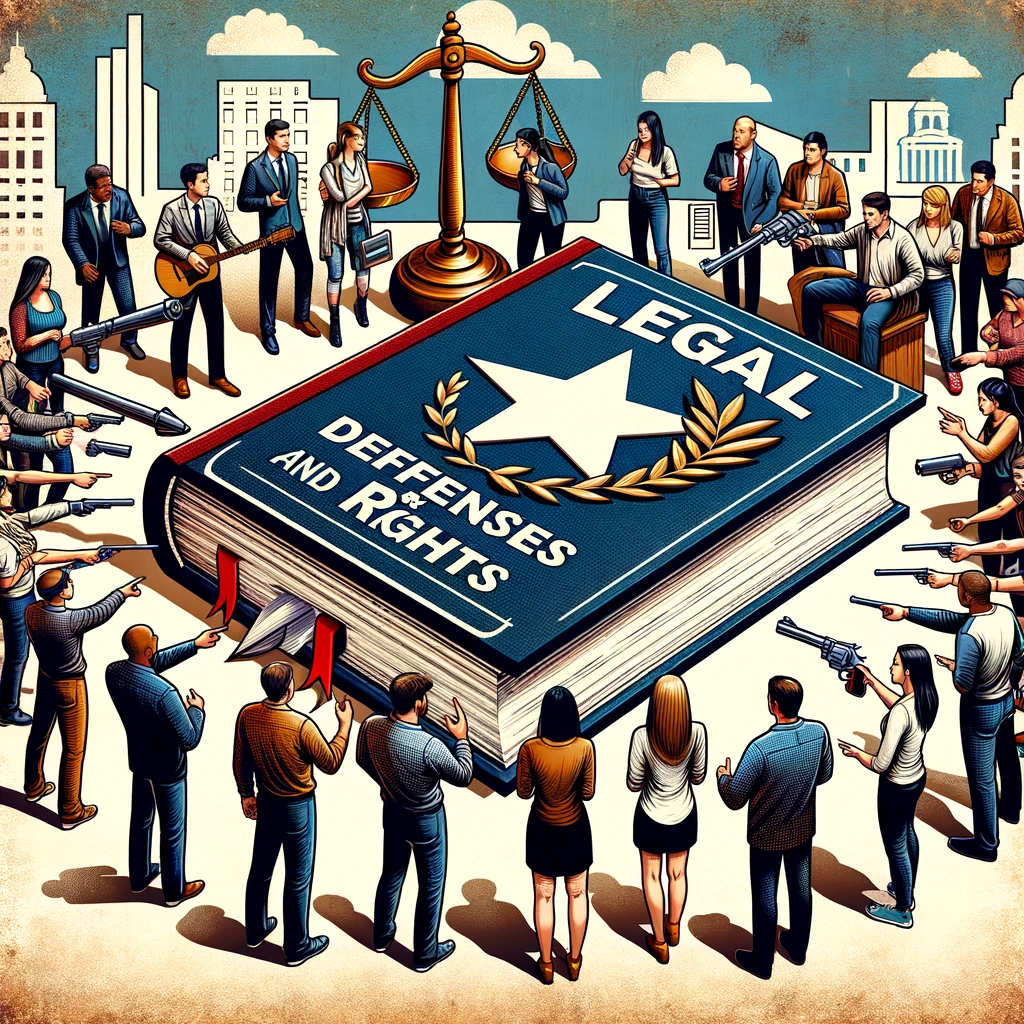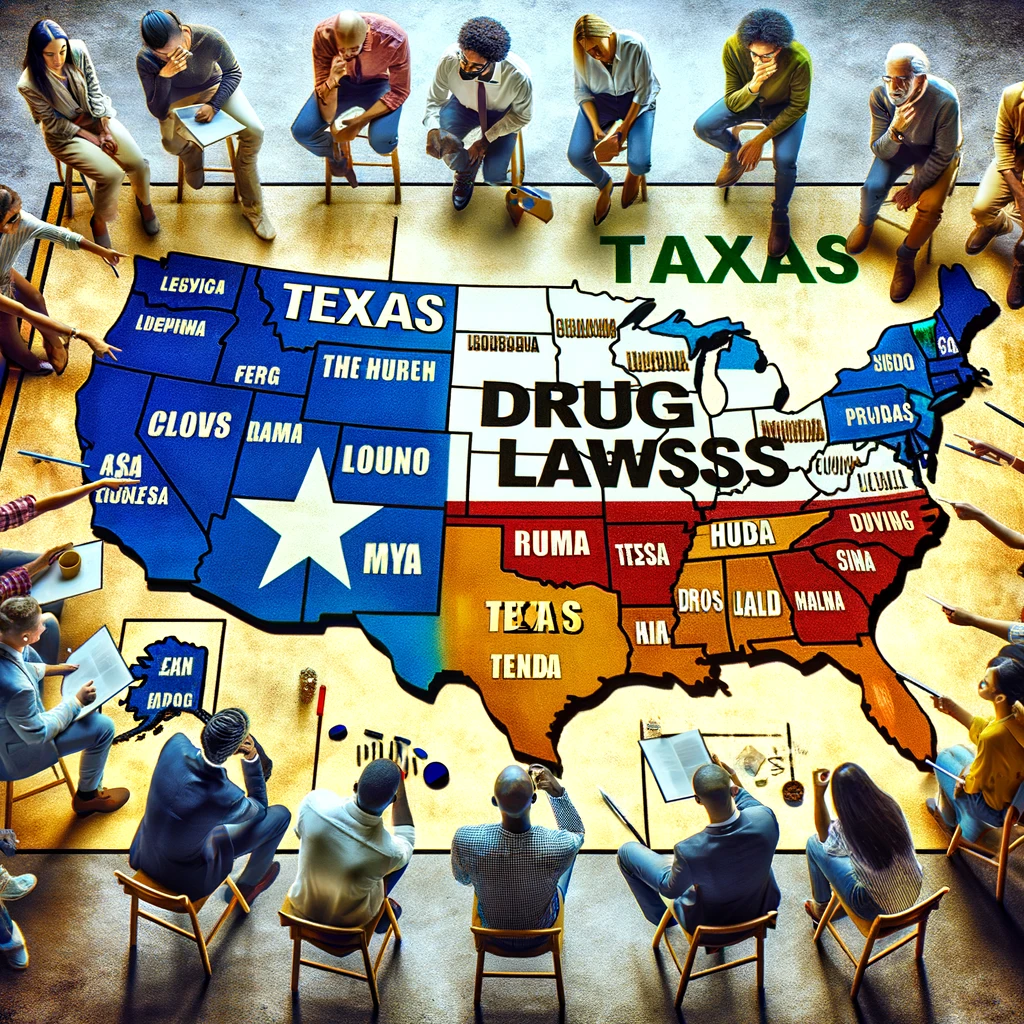
The landscape of alcohol, marijuana, and drug penalties in Texas is complex and evolving. As such, understanding these laws is crucial for residents and visitors alike. This article serves as an in-depth guide to navigate the intricate legal framework governing substance-related offenses in the Lone Star State. Let’s dive into the Texas Guide to Substance Penalties.
Welcome to the Wild West of Legalities: Texas Style!
Ever found yourself at a Texas BBQ, thinking, “Can I hold this beer legally?” Or perhaps, wandering through Austin’s vibrant streets, you’ve pondered, “What’s the deal with marijuana here?” You’re not alone in this Lone Star State puzzle. Welcome to our guide on alcohol, marijuana, and drug penalties in Texas – a topic as spicy as the state’s famous chili!
Why stick around for the Texas Guide to Substance Penalties?
Imagine sidestepping legal missteps with the grace of a line dancer, all while sipping your legal margarita. Intrigued? Good. Whether you’re a local, a visitor, or just curious, understanding Texas’s stance on these substances can save you from a real hoedown with the law.
In this blog, we’ll gallop through the must-knows of
It’s the short answer to your big question: “How does Texas really feel about my weekend plans?” Keep reading, and let’s unravel the mysteries of Texas law together, y’all!
Overview of Texas Drug Laws
In Texas, the Controlled Substances Act reigns supreme, categorizing drugs from Schedule I to V. Schedule I drugs, seen as the most dangerous, have no recognized medical value and a high potential for abuse. Penalties increase with the drug’s potential for harm, underscoring the state’s strict stance on illegal substances.

Alcohol-Related Penalties in Texas
Alcohol laws are rigorously enforced here. DUI and DWI offenses can lead to severe repercussions, including license suspension, fines, and even jail time. The state maintains a zero-tolerance policy for underage drinking, highlighting its commitment to public safety. Providing alcohol to minors is equally punishable, illustrating Texas’ holistic approach to alcohol regulation.

Marijuana Penalties in Texas
Despite a nationwide trend towards legalization, marijuana remains largely illegal in Texas. Penalties for possession, distribution, and cultivation are substantial, reflecting the state’s conservative stance. However, the introduction of medical marijuana programs marks a significant, albeit limited, shift in policy, indicating a nuanced approach to cannabis-related offenses.
| Offense Type | Corresponding Penalties |
| Possession (less than 2 ounces) | Class B misdemeanor: Up to 180 days in jail, $2,000 fine |
| Possession (2 to 4 ounces) | Class A misdemeanor: Up to 1 year in jail, $4,000 fine |
| Possession (4 ounces to 5 lbs) | State Jail Felony: 180 days to 2 years, $10,000 fine |
| Distribution (small amounts) | Varies based on quantity, up to 180 days in jail for less |
| Cultivation | Same as possession, varies by plant amount and weight |
| Medical marijuana use | Restricted use permitted under Compassionate Use Act |
Penalties for Other Controlled Substances
Texas’s battle against drugs extends beyond marijuana. Penalties for the possession, manufacturing, and distribution of controlled substances like opioids, cocaine, and methamphetamine are particularly stringent. These laws are designed to deter drug abuse and trafficking, showcasing the state’s aggressive approach to combating drug-related issues.
Legal Defenses and Rights
Understanding one’s legal rights and possible defenses is essential when facing drug charges. Texas law provides avenues for defense, but awareness is key. Knowing your rights during an arrest can greatly influence the case’s outcome, emphasizing the importance of legal knowledge and representation.

Impact of Drug Convictions
The repercussions of a drug conviction extend far beyond the courtroom. Employment, housing, and education can be adversely affected, underscoring the long-term consequences of drug offenses. Such penalties aim to deter future drug use and emphasize the seriousness of drug-related crimes in Texas.
Texas Drug Courts and Rehabilitation Programs
In a shift towards rehabilitation, Texas offers drug court programs focusing on treatment and recovery. These initiatives represent a compassionate approach to substance abuse, highlighting the state’s recognition of addiction as a complex, treatable condition.

Preventive Measures and Education
Prevention and education are key components of Texas’s strategy against drug abuse. State-sponsored programs aim to educate the public on the dangers of drug use and the legal ramifications of substance abuse. These efforts are crucial in preventing drug-related offenses and fostering a safer community.
Recent Changes and Proposed Legislation
The legal landscape regarding substance abuse in Texas is not static. Recent legislative changes reflect evolving attitudes towards drugs, particularly marijuana. Staying informed about these changes is essential for understanding current laws and anticipating future legal trends.
Comparison with Other States
When compared to other states, Texas’s drug laws are relatively strict. This comparison highlights the diverse approaches to drug penalties across the country and underscores the importance of understanding local laws, especially for those traveling or relocating.

In Summary: the Texas Guide to Substance Penalties
Navigating the complexities of alcohol, marijuana, and drug penalties in Texas requires a thorough understanding of the state’s legal landscape. The penalties are severe, and the laws are intricately detailed, reflecting Texas’s commitment to maintaining public safety and order. By staying informed and compliant, individuals can avoid the far-reaching consequences of substance-related offenses. Whether you’re a resident or a visitor, understanding these laws is crucial for navigating the legal landscape of the Lone Star State safely and responsibly.
Well, folks
We’ve galloped through the vast legal landscape of Texas like a cowboy on a wild mustang. From the prickly cacti of marijuana laws to the tumbleweeds of alcohol regulations, it’s been quite the ride. Remember, in Texas, the law’s as big as the sky, especially when it comes to alcohol, marijuana, and drugs.
The short answer to the Texas Guide to Substance Penalties?
Texas doesn’t kid around with its penalties. But why just ride into the sunset with just that? Our journey showed us the paths of understanding legal defenses, navigating the harsh terrain of penalties, and even finding oasis spots in rehabilitation programs. So, whether you’re a lone star local or just passing through, knowing these laws keeps you out of the sheriff’s reach. Keep this guide handy, partner, and you’ll be sure to steer clear of any unwanted legal showdowns. Yeehaw, and safe travels through the legal frontier!

Other Related Articles:
- Prescription Drug Fraud: Laws and Penalties In Texas
- The Role of Substance Abuse Assessments in Texas Drug Cases
- Texas Drug Scheduling: Understanding Controlled Substances
- Texas Drug Trafficking: Laws and Penalties
- Silent Epidemic Uncovered: Takedown Of The Fentanyl Ring
- Navigating DWI: Texas Laws on Marijuana and Alcohol
- Exploring DUI and Marijuana Laws in Texas
- Understanding DUI in Texas: Alcohol, Marijuana, and the Law
- The Impact of Traffic Violations on Your Driving Record
- Texas’ Response to Designer Drugs: Laws and Enforcement
Frequently Asked Questions:
The penalties for drug laws in Texas vary depending on the type and amount of the drug. They can range from fines to imprisonment.
Texas classifies drugs into four penalty groups, with Group 1 being the most severe and Group 4 the least.
Beating drug charges in Texas may involve proving unlawful search and seizure, lack of possession, or mistaken identity.
Penalties for drug offenses in drug-free zones in Texas are enhanced, leading to higher fines and longer jail terms.

